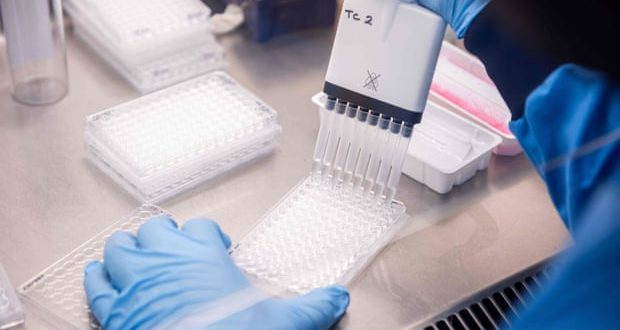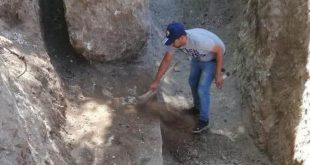The world is moving a step closer to ending the coronavirus pandemic, the scientist behind Britain’s first vaccine has declared, as Boris Johnson said he hoped the majority of those most at-risk could be immunised by Easter.
Successful trial results for the Oxford University/AstraZeneca vaccine, suggesting it could protect up to 90% of people, are the third set of promising findings in as many weeks. Before this year, there had never been a vaccine for a coronavirus.
The development came as a relief to the UK government, which has invested heavily and ordered 100m doses – enough for the whole adult population
Matt Hancock, the health secretary, said that subject to regulatory approval, the bulk of the UK rollout could come in the new year, while the prime minister said a “favourable wind” could allow the majority of people most in need of a vaccination to receive one by Easter. “I don’t want to give any more hostages to fortune than that, but that’s the best information we have,” Johnson told a Downing Street press conference.
It was also hailed as exciting news for the rest of the world, especially low-income countries. The vaccine is low-cost, at £3 a dose compared with more than £20 for the Pfizer/BioNTech and Moderna vaccines, which also released results this month.
The latest vaccine does not need to be shipped and stored in ultra-cold freezers, solving a huge logistical problem posed by the others, and there is good data that it will work as well in elderly people as in younger people.
“The announcement today takes us another step closer to the time when we can use vaccines to bring an end to the devastation caused by [Covid-19],” Prof Sarah Gilbert from the University of Oxford, who has led the research, told the Guardian. “We will continue to work to provide the detailed information to regulators. It has been a privilege to be part of this multinational effort, which will reap benefits for the whole world.”
The long-anticipated efficacy results revealed on Monday delivered a major surprise. Overall efficacy from trials in the UK and Brazil was 70%, but the vaccine worked better in people given a lower first dose. Those who got a half dose, followed four weeks later by a full dose, enjoyed 90% protection, while efficacy among those who had two full doses was 62%.
While AstraZeneca said it would submit its data to the UK regulator immediately. New trials will have to be run in the United States, where the half-dose regime was not being tested, pushing back any possibility of the vaccine being available there before Christmas.
The scientists said they could not fully explain why a lower first dose appeared to give better protection. “We think that by giving a smaller first dose that we’re priming the immune system differently – we’re setting it up better to respond,” said Prof Andrew Pollard, director of the Oxford Vaccine Group and chief investigator of the trial. “And what we don’t know at this moment is whether that difference is in the quality or the quantity of immune response.”
Gilbert said people should not assume that the other two vaccines, which achieved 95% efficacy in trials and were both made using a different, novel mRNA technology that uses genetic code instead of virus, were better. The trials had not been set up to measure the same things.
“We need to bear in mind these are early data,” she said. “We have additional trials running. Those numbers may be a little bit different in the ultimate analysis. You can’t directly compare the readout from different clinical trials. If you don’t have the same criteria for enrolling people or endpoint cases, you can’t compare.”
Experts were enthusiastic about the vaccine, which has long been one of the biggest hopes for taming the pandemic worldwide. Oxford/AstraZeneca have joined Covax, the World Health Organization-led programme to distribute vaccines to all countries, and done deals with manufacturers in other countries. The Serum Institute of India is to make 1bn doses.
“If there is anyone out there who still doubts that a Covid-19 vaccine can help us out of this pandemic, the announcement today from Oxford University/AstraZeneca should surely dispel that doubt,” said Eleanor Riley, a professor of immunology and infectious disease at the University of Edinburgh. “This is excellent news – another vaccine that can prevent symptomatic infections and, even better is cheap to produce and easy to distribute.”
Dr Richard Hatchett, the chief executive of the Coalition for Vaccine Preparedness (CEPI) which is involved in Covax, said they believed the Oxford vaccine “has the potential to significantly alter the course of the global pandemic. The data released today suggest the vaccine is safe and comparable in its efficacy to other licensed vaccines – including influenza – that are widely used to protect people around the world today.”
Oxford/AstraZeneca say they believed their vaccine may help stop transmission, potentially preventing the spread of the coronavirus, as well as protecting people from becoming ill. Unlike other vaccines, they have collected weekly swabs sent from UK volunteers given home test kits. The data, which has not yet been published, suggests a reduction in asymptomatic infection among people who were vaccinated.
Hancock said that if the data was approved by the regulator, the vaccine would be available for most people next year. “This is really encouraging news on the Oxford/AstraZeneca vaccine, that obviously we’ve been backing since the start,” he told Sky News. “And I’m really very pleased, really welcome these figures, this data, that show that the vaccine in the right dosage can be up to 90% effective.
“Of course, it’s vital that the independent regulator, the MHRA [Medicines and Healthcare products Regulatory Agency], will need to look at the data, will need to check to make sure that it’s effective and safe of course. But we’ve got 100m doses on order and should all that go well, the bulk of the rollout will be in the new year.”
Dr Charlie Weller, the head of vaccines at Wellcome, said every effective vaccine would be needed. “To have interim results from three vaccine teams within a year is incredible, and testament to a truly extraordinary global scientific effort. We need a range of vaccines, that can protect people of different ages and backgrounds wherever they live, and to be able to manufacture enough doses for the world.
“To meet the aim of vaccinating high-risk populations around the world over the next year we need at least 2bn vaccine doses.”
The Guardian
 Lebanese Ministry of Information
Lebanese Ministry of Information



